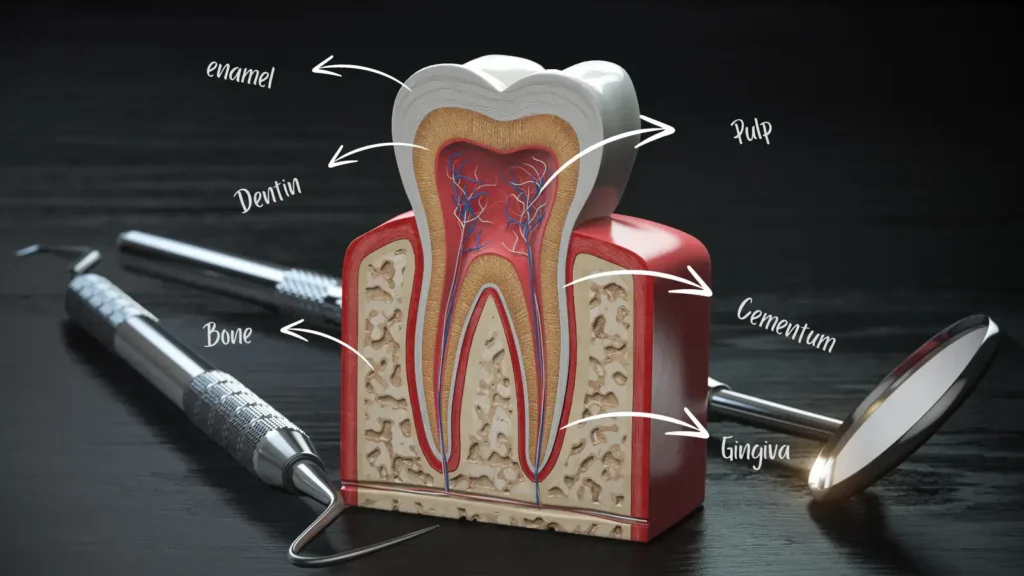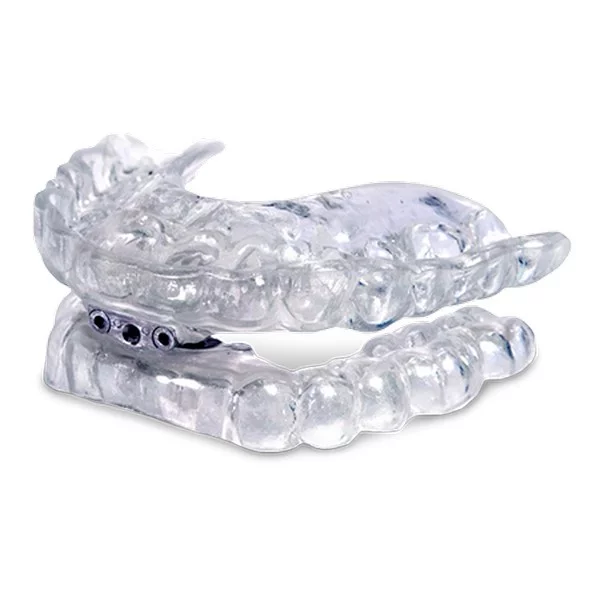We accept Medicare
Ouch! Is It Tooth Sensitivity? Signs, Causes, and Solutions

Ever wince when you sip on a hot coffee or savor a refreshing ice cream cone? If sudden jolts of pain shoot through your teeth with certain foods and drinks, you might be experiencing tooth sensitivity. Don’t worry, you’re not alone! In fact, studies show that nearly 40 million Americans experience tooth sensitivity at some point in their lives.
Here at Elegantly Dental PLLC, conveniently located at 2813 S. Hiawassee Rd. #105 Orlando, FL 32835, we understand how frustrating and uncomfortable sensitive teeth can be. That’s why we’ve created this comprehensive guide, complete with helpful visuals, to help you understand the signs, causes, and solutions for this common dental issue.
Understanding Tooth Sensitivity: A Peek Inside Your Smile
Tooth sensitivity, also known as dentin hypersensitivity, occurs when the underlying layer of your teeth, called dentin, becomes exposed. Dentin is naturally more sensitive than the hard outer layer of enamel. Enamel protects your teeth from extreme temperatures and other irritants.

Think of enamel as your teeth’s shield. When this shield weakens or wears down, the tiny microscopic tubes within the dentin, which lead to the nerve center of your tooth, get exposed. This allows hot, cold, sweet, acidic, or even rough textures to directly stimulate the nerves, causing those uncomfortable twinges.
Signs and Symptoms of Tooth Sensitivity:
How can you tell if you have sensitive teeth? Watch out for these common signs:
- Sharp, brief pain: Hallmark symptom of tooth sensitivity is a quick jolt of pain in teeth when exposed to triggers. This pain usually subsides quickly once the irritant is removed.
- Sensitivity to hot and cold: This is the most common trigger, causing a zinging pain when you drink hot coffee, tea, or cold beverages like iced water or soda.
- Sensitivity to sweet or acidic foods: Sugary treats or acidic fruits like oranges or grapefruits can also trigger discomfort.
- Pain during brushing or flossing: People with sensitive teeth might experience discomfort while brushing or flossing. Especially if they use a hard-bristled brush or harsh brushing techniques.
- Pain from breathing in cold air: In some cases, even inhaling cold air can trigger sensitivity.
Unveiling the Culprits: What Causes Tooth Sensitivity?
Several factors can contribute to tooth sensitivity. Here are some of the most common culprits:
- Receding gums: As you age or due to gum disease, your gum tissue can recede. Which exposes the sensitive dentin layer of your teeth.
- Worn tooth enamel: Over time, enamel can erode due to factors like acidic foods and drinks, brushing too hard, or using abrasive toothpaste.
- Cracked or chipped teeth: Cracks or chips in your teeth can expose the dentin layer and lead to sensitivity.
- Recent dental procedures: Certain dental procedures like fillings or crowns can temporarily irritate the tooth and cause sensitivity.
- Teeth grinding (bruxism): Grinding or clenching your teeth can wear down enamel and contribute to sensitivity.
Solutions for Sensitive Teeth: Finding Relief and Long-Term Comfort
The good news is that there are a number of strategies to manage and even prevent tooth sensitivity. Here’s how to fight back against the ouch factor:
- Use a toothpaste for sensitive teeth: These toothpastes contain ingredients like potassium nitrate or stannous fluoride that help block the tiny tubules in dentin, reducing sensitivity.
- Switch to a soft-bristled toothbrush: Hard-bristled brushes can further erode enamel and irritate gums. Opt for a soft-bristled toothbrush and use gentle brushing techniques.
- Mind your diet: Limit your intake of acidic foods and drinks that can erode enamel. If you do indulge, rinse your mouth with water afterwards to neutralize the acid.
- Consider a desensitizing mouth rinse: Certain mouthwashes contain ingredients that can help desensitize the dentin tubules and provide relief.
- Get professional help: If your sensitivity is severe or doesn’t improve with home care, schedule an appointment with your dentist at Elegantly Dental PLLC. We can diagnose the underlying cause and recommend appropriate treatment options like fluoride treatments, dental bonding, or crowns to protect exposed dentin.
Bonus Tips and Tricks for Long-Term Success:
- Practice good oral hygiene: Brushing twice a day and flossing daily removes plaque and bacteria that contribute to gum disease and enamel erosion.
- Replace your toothbrush regularly: Toothbrushes lose their effectiveness over time, so swap yours out every 3-4 months, or sooner if the bristles become frayed.
- Don’t forget your tongue! Brushing your tongue gently helps remove bacteria that can contribute to bad breath and even irritate gums.
- Stay hydrated: Drinking plenty of water throughout the day helps wash away food particles and keeps your mouth moist, reducing discomfort.
- Manage stress: Stress can worsen teeth grinding, which can contribute to sensitivity. Relaxation techniques like deep breathing or meditation can be helpful.
- Schedule regular dental checkups: Regular dental checkups and cleanings at Elegantly Dental PLLC allow us to monitor your oral health, identify any potential problems early on, and recommend preventive measures to keep tooth sensitivity at bay..
Considering Alternative Solutions?
While not a substitute for professional dental care, some people find relief from tooth sensitivity with natural remedies. It’s important to note that these methods lack strong scientific backing, and consulting your dentist before trying them is crucial. Here are a few approaches to explore with caution:
- Desensitizing toothpaste with natural ingredients: Look for toothpastes containing ingredients like aloe vera or potassium chloride, which may offer some relief.
- Oil pulling: Swishing with coconut oil for 15-20 minutes may help reduce inflammation and sensitivity.
- Clove oil: Clove oil has natural numbing properties. Apply a diluted solution (one drop clove oil mixed with carrier oil like olive oil) directly to the sensitive tooth using a cotton swab (avoid contact with gums). However, due to its potency, use this remedy with extreme caution and only for short periods.
Remember: Always consult your dentist before trying any alternative remedies for tooth sensitivity.
Living with Sensitive Teeth in Orlando and Beyond: Your Path to Comfort
Tooth sensitivity can be a nuisance, but it doesn’t have to control your life. By understanding the causes and implementing the solutions outlined above, you can effectively manage this condition and enjoy a pain-free, comfortable smile. Here at Elegantly Dental PLLC, we’re committed to helping you achieve optimal oral health.
If you’re experiencing tooth sensitivity in Orlando, FL, or the surrounding areas like Winter Garden, Windermere, or Dr. Phillips, don’t hesitate to schedule an appointment with our friendly and experienced team. We’ll work with you to create a personalized treatment plan to get you back to enjoying your favorite foods and beverages without wincing!
Remember, early diagnosis and intervention are key to managing tooth sensitivity effectively. Don’t wait for the pain to worsen. Contact Elegantly Dental PLLC today and take control of your oral health!



